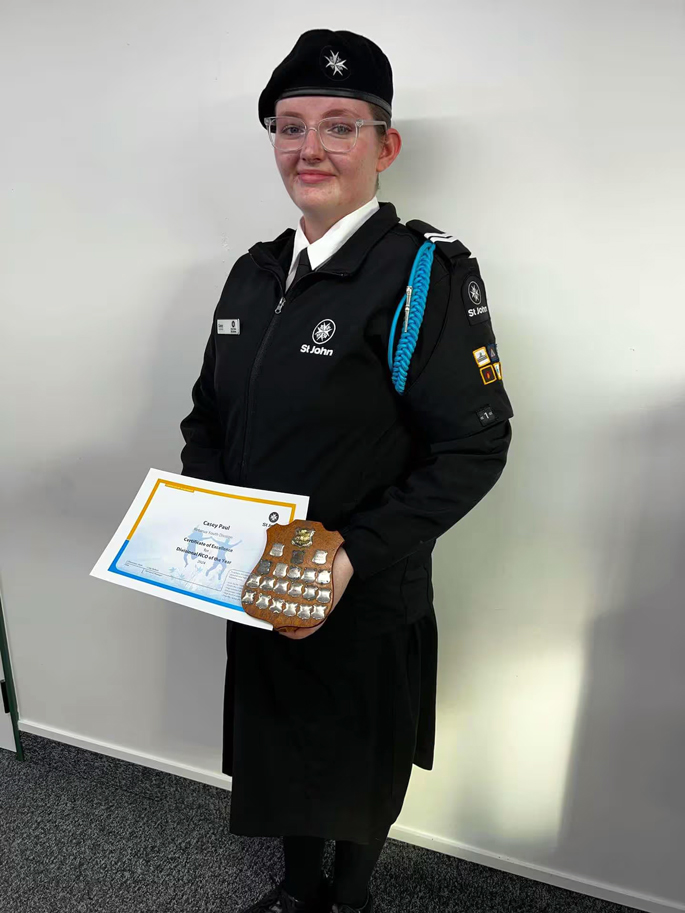Bay of Plenty schools are grappling with low attendance rates with one principal saying they are having to “reform habits” students have made since Covid-19 to teach young people to “get up, go somewhere and add value”.
New attendance figures released by the Ministry of Education for term three show the region’s schools are below the national average despite an improvement on the prior year’s term-three figures.
The figures show most regions in New Zealand are starting to slowly increase attendance rates but the country’s schools are a long way off what they were before Covid-19 struck in 2020.
 Tauranga Boys' College principal Andrew Turner. Photo / Mead Norton
Tauranga Boys' College principal Andrew Turner. Photo / Mead Norton
Tauranga Boys’ High School principal Andrew Turner said his school was doing its best to address the issue and had employed more staff to work with families.
“The cool thing is we are committed to it and we all agree on the importance of it.”
He said despite the progress, attendance levels had not been the same since before Covid-19.
“We are seeing patterns of behaviour where it has become permissible to stay home so what schools are working hard on is addressing the habit of attending.”
Turner said society was dealing with the same problem and that attitude was reflected in the workforce.
“It’s addressing the habit of attending, going to work, fronting up in a timely fashion … We are looking to reform habits and that includes the habit of getting up and going somewhere and adding value, and that’s the shift we need.”
 Ōtūmoetai College principal Russell Gordon. Photo / Supplied
Ōtūmoetai College principal Russell Gordon. Photo / Supplied
Ōtūmoetai College principal Russell Gordon said it was a complex issue but schools were being asked to record students as having unjustified absences when they could be on an overseas trip gaining valuable life skills or competing in extracurricular activities that could eventually benefit their careers.
He said this year alone he had signed about 100 letters permitting parents to take their children out of school during term for extended overseas or national trips.
He said they might be trips to the South Island or Europe but either way, it affected the school’s attendance statistics.
“As far as I’m concerned those are life experiences these kids will learn and grow from so it’s an interesting dilemma. We can’t say to these parents, ‘No, you can’t take your child’. Yes, they are losing out on curriculum learning but they are learning in other instances and when you combine them they can lead to growing a well-rounded individual.”
He said he recently approved one of his students to go overseas to compete in a dance competition for two weeks. The student had “real career aspirations” as a dancer and such competitions were critical for her future, he said.
“On paper that’s an unjustified absence but she is doing this because it will serve her career opportunities.”
He said schools were also tasked with trying to maintain students for longer and were asked to be “more engaging”.
“We will never be as exciting to some as PlayStation.”
He said when schools recorded someone as away sick, it could relate to other situations, such as mental health issues.
Gordon said it would be good to have a review of the attendance criteria but he understood it had not been a priority given the sweeping changes in the education sector in recent years.
“But the whole way we look at attendance is not nuanced enough.”
Gordon said Ōtūmoetai College’s overall attendance was increasing and he was comfortable with where it was heading.
What the figures show
Nationally 51.3% of students met the criteria in term three for regular attendance - which meant they were at school more than 90% of the term.
In the Bay of Plenty, 47.8% of students were regularly attending in term three.
The best region was Canterbury and Chatham Islands which had a record of 54.9% of students regularly attending and the worst area was Tai Tokerau (Northland).
Boys have slightly better attendance than girls with 51.7% of boys regularly attending 90% of the time compared with 50.9% of girls. The best year levels for slightly higher attendance were Years 4, 5 and 6. The worst year levels for attendance were Years 10, 12 and 13.
What the Ministry of Education says
Students are required to attend school every day under Section 36 of the Education and Training Act and school boards must ensure students attend.
Ministry operations and integration leader Sean Teddy said going to school every day was important for students to develop skills for lifelong learning.
He said holidays taken during term time should be recorded as an unjustified absence.
“Parents and schools must prioritise school attendance.”
Principals had discretion to approve absences for up to five days, he said. The new Stepped Attendance Response required all absences to have an “appropriate and proportionate response”. From 2026, all schools will be required to have an attendance management plan, Teddy said.
From term 1 this year, schools must report daily attendance data to the ministry, using refreshed codes for different types of absences, or a truancy code if no reason was provided.
He said prosecution would not be initiated for parents of students absent for genuine reasons or who were engaging with a school and support options offered.
Exceptional attendance
When Casey Paul’s family wanted to go to Hawaii, the Rotorua Girls’ High School student said no.
It was not because basking in the glorious sunshine was not appealing, it was because the 16-year-old, who says she has not missed a day of school since she started as a 5-year-old, was determined not to break her perfect record.
 Casey Paul, 16, from Rotorua hasn't missed a day of school since she started as a 5-year-old. Photo / Kelly Makiha
Casey Paul, 16, from Rotorua hasn't missed a day of school since she started as a 5-year-old. Photo / Kelly Makiha
She said her achievement had been celebrated every year at schools she had attended, including Westbrook School, Rotorua Intermediate School and Rotorua Girls’ High School.
Casey is Year 13 in 2025 and said she was on a quest to achieve the perfect record for all her school years.
She loved school so going was easy. But she said she also liked being a role model for other students by continuing to have a perfect attendance record.
Her mother, Paula, said the family was proud of her achievements, although they have had to juggle their lives around a bit to help her achieve her goals - including cancelling a family holiday to Hawaii.
The flights they had planned to book meant Casey would need to miss two days of school at the end of a term - which was not an option for Casey.
She has also struck gold so far in terms of illness - only getting Covid-19 in the school holidays and not suffering any major sickness during term.
Paula has even made special requests for specialist appointments for Casey’s braces to ensure there were no absences.
When students returned to school after the lockdown in 2020, Casey took her health seriously and wore gloves and a mask for the first few weeks.
Casey said attendance was important to her because she did not want to fall behind at school and wanted to prove to future employers she was dedicated.
It’s not just school where Casey puts in the hard yards.
 Casey Paul was named 2024 Lakes District St John Cadet of the Year. Photo / Supplied
Casey Paul was named 2024 Lakes District St John Cadet of the Year. Photo / Supplied
She has just been promoted at St John Cadets to the rank of sergeant and was named 2024 District Cadet of the Year for the Lakes District.
Her goal is to attend the University of Auckland and eventually become a paramedic.
“I want to work for St John because Nana needed ambulances when she had falls. I like helping people and at primary school teachers nicknamed me a mother hen because I would always help others before myself.”
Casey is already looking forward to excelling at Rotorua Girls’ High School in her final year.
“I really like the diversity of girls’ high. No culture is overlooked and there’s a diverse range of arts and sports. No matter who you’re taught by, it feels like you always have a place there.”
Principal Sarah Davis described Casey as “one of life’s great treasures”.
“She is universally loved by the student population. They see her as a living legend.”
Davis said the school had focused on improving attendance levels through shared fortnightly records, by running a “spin the wheel” prize each term for those who had perfect attendance and making it compulsory for students to have an 85% or better attendance if they wanted to represent the school in sport or other activities.
Principals of Westbrook and Rotorua Intermediate schools also confirmed Casey’s perfect record.



0 comments
Leave a Comment
You must be logged in to make a comment.